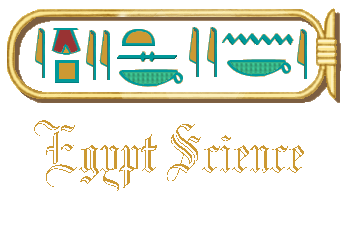


|
|
|
|
RTC/ ICIDR RESEARCH FELLOWSHIP PROGRAMThursday June 07, 2007 The Research and Training Center on Vectors of Diseases (RTC) is an autonomous entity answering to an eminent national board of directors chaired by the Vice President of Ain Shams University for Community Services and Environment Development and currently directed by Prof. Adel Gad. The Center was established in 1977 as a malaria research unit and expanded its activities on broader range of vector borne diseases after the university council approved its designation as an independent Center in 1981. The vision for the Center grew out of increasing requests from Egyptian and international researchers interested in vector borne diseases for training and conducting research in the field of vector borne diseases, primarily on filariasis, leishmaniasis, malaria and arboviruses. RTC has recently been awarded a major grant on lymphatic filariasis in Egypt. This grant provides funds for training fellowships to help develop future scientific leaders in Egypt in disciplines related to the field of vector borne diseases. Program Description:This Research Fellowship program (funded by the National Institutes of Health in the USA) is designed to support career development for future leaders in Egypt in the areas of epidemiology, vector biology, and molecular biology related to vector borne diseases. RTC/ICIDR Research Fellowships are supported for a period of up to two years, depending upon the type of research being undertaken. Fellowships cover the cost of research program, and a monthly stipend. Research Fellows are required to be in residence at RTC at Ain Shams University for the duration of their Fellowships. The outcome of a Fellowship should be either published original work in a particular vector borne diseases discipline, or progress toward advanced degrees (MSc, M.D., Ph.D). Eligibility:The Fellowship Program is open to individuals holding a B.Sc. or M.Sc. or equivalent certificates, and who are currently employed as staff at universities, MOHP, research institution or affiliated to a research project within Egypt. The Research Fellowship will support up to three fellows per year starting in 2006. Research Fellows are paid a monthly stipend (paid in local currency) for the duration of the research period (2 years). Research Fellows who applying for a Ph.D. or M.D. should have made a contribution to their discipline through publications, conference presentations, or other academic forums. Junior Research Fellowships who are applying for M.Sc. should have a B.Sc. degree in Biology, Biochemistry or Epidemiology. Application Process:Applications will be evaluated by the RTC ICIDR Fellowship committee. The application process is open now and the firm deadline for the current round of review is 10th of April. Please note: those who are registered for M.Sc. or Ph.D/M.D. degrees and are about to finish their research program are not eligible to apply in the Research Fellowship program. Program Requirements:Besides submitting the required application form and supporting documents, Research Fellowship applicants should submit 2 page essay or summery of a research proposal related to vector borne diseases in Egypt and the EMRO region. Prior to completion of the Fellowship program, fellows are required to present a summary of their research with appropriate background information in a lecture to RTC staff. They must also submit a short (10 page) written summary of their project in English Within 6 months of completion of the Fellowship, Fellows will be expected to submit a manuscript in English for for publication that is based on research conducted during their fellowship. Any publications reporting work conducted during the fellowship must acknowledge that this research was conducted with support from the RTC/ ICIDR Fellowship program. Application instructions for RTC/ICIDR Research Fellowship program:
Requests for additional information and completed application form should be sent to:
Application Form:Please complete and submit the Application Form available online. For the purpose of the evaluation and selection process it is essential that all questions in the application form are answered. INCOMPLETE APPLICATIONS CANNOT BE CONSIDERED FOR SELECTION.
| |||||||||||||
Send mail to
webmaster@egyptscience.com with
questions or comments about this web site.
|